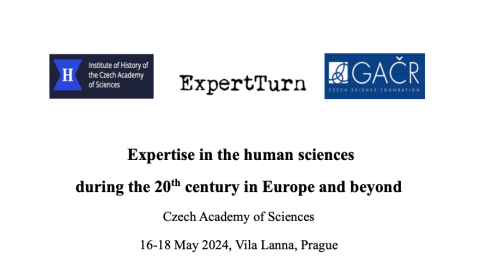Expertise in medicine and the human sciences during the 20th century in Europe and beyond Prague 16-18 May 2024

Expertise in medicine and the human sciences during the 20th century in Europe and beyond
Prague 16-18 May 2024
Between May 16 and 18, ExpertTurn research group (“Expertise in authoritarian societies. Human sciences in the socialist countries of East-Central Europe,” funded by the Czech Science Foundation EXPRO-Excellence in Basic Research) organized the workshop ‘Expertise in medicine and the human sciences during the 20th century in Europe and beyond’. Expertise shapes modern societies, and the issues of health and normalcy form their core. That is why analyzing the disciplines of medicine and the human sciences – such as psychology, sociology, demography, and pedagogy – is helpful in understanding how modern societies function and change. The event focused on the human science expertise that circulated in Europe, whether it originated there or elsewhere, during the short 20th century (approximately from the interwar period to post-socialism, the 1920s-1990s).
In her presentation, Viola Lászlófi explored whether the institutionalization of death and dying in Hungary in the 1960s and 1970s involved social conflicts at the micro level of society. And, what role could medical expertise play in these struggles? As women entered the workforce, domestic care for the terminally ill and elderly became less feasible, thus hospitals increasingly became sites of death in the early 1960s, when healthcare became freely available to almost the whole society. Her main point was that while these conflicts between doctors and the relatives of the deceased demonstrate that medical expertise was a tool for implementing a changing, politically acceptable concept of death and dying, doctors could use their professional expertise and authority to both facilitate and hinder the realization of these goals.